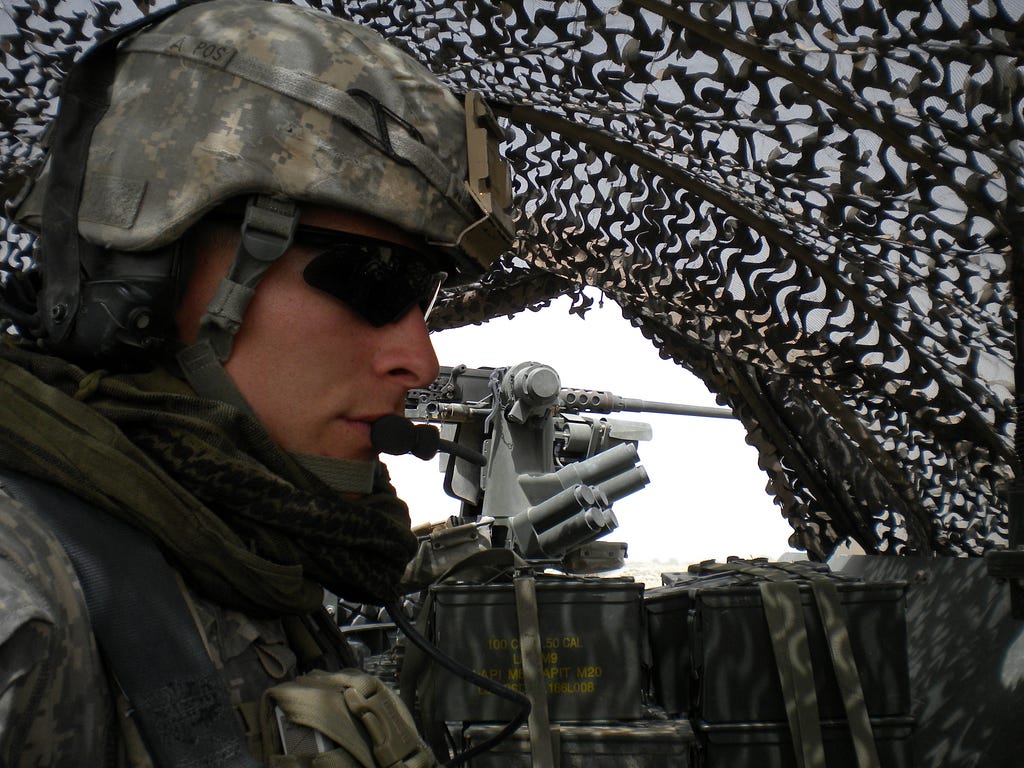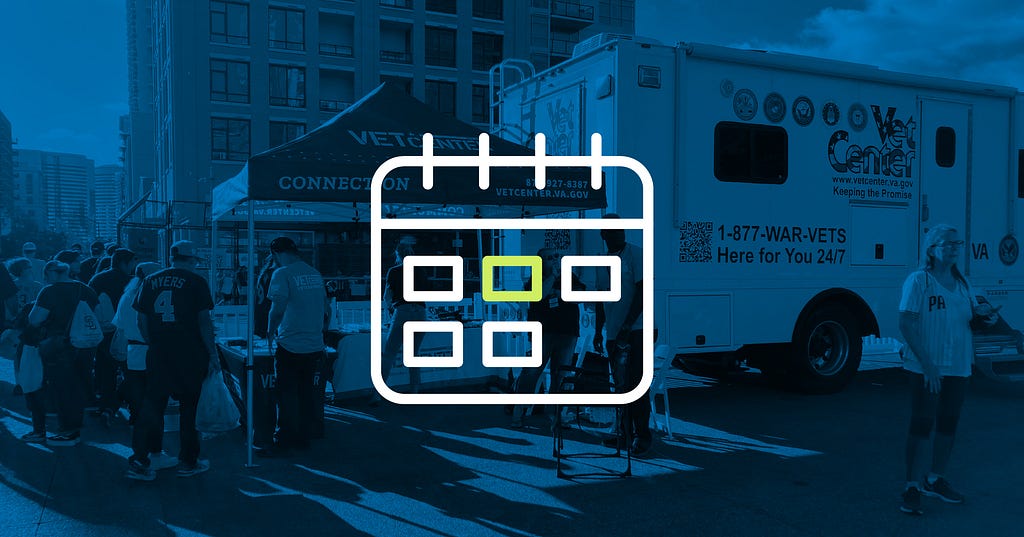
In Honor of Veterans Day, DCG’s Veterans Share Their Experiences
Written by Megan Wojcik
Each year, Americans set aside a day in November to honor those who served our country. At DCG, Veterans Day has even more meaning — DCG was founded to help Veterans, and every day, we continue this mission.
DCGers who are Veterans recently shared some insight into their time in the military. We’re proud of these colleagues and value and appreciate the experiences they bring to DCG.

Why is Veterans Day such an important/special holiday to observe?
Adam Clampitt (Navy, 2003-present): Veterans make a conscious decision to sacrifice other parts of their life to defend our nation. Many give their life and leave behind families. It’s important for us to honor their sacrifice and understand that without Veterans we would not enjoy the freedoms that we take for granted.
Brian Mays (Army, 1978-2003): Veterans Day celebrates those who have served our nation, in war or in peace. Originally known as Armistice Day, it emanates from the armistice of WWI, which happened at the 11th hour of the 11th day of the 11th month. There really are very few citizens who have served or have the propensity to serve, therefore it is very important for the services to foster and maintain a relationship with the American people. The military and Veterans are and always will be part of making the American experience happen, and it is fitting that we honor them.
Tom McCuin (U.S. Army, 1989-1992; U.S. Army Reserve, 1992-2014): In the past, wartime service was a shared sacrifice. But since 9/11/01, fewer than 1% of the country has worn the uniform. Veterans Day used to be a day to celebrate that shared sacrifice. That’s still an important fact to remember.
Justin Watt (Army, 2005-2009): I think because of the nature of military life, it inherently becomes insulated from the overall American experience. Days like Veterans Day help bridge the gap between society writ large in America and the Veteran community. I think it’s important to understand who we are, what we’ve done, and what we do. People don’t immediately associate the Navy with commerce, but, without our Navy, trade on an international level would be nearly impossible. I think anything these days that brings Americans closer together is a good thing.
Brent Wingfield (Army, 2004-2012): “Those who cannot remember the past are condemned to repeat it.” Veterans Day is an important tradition that honors the service, sacrifices, and struggles faced by America’s Veterans. It’s easy to take our country, our rights, and the human cost that’s been paid for them for granted. But a quick skim through history (the Army is older than the United States) shows how unique, how new, and how fragile our way of life is. It is utterly and entirely because of the willingness, strength, and sacrifices of American soldiers, sailors, airmen, and Marines that we are fortunate enough to enjoy the freedoms we have. They are why the American Experiment has endured. When America goes to war, those who answer the call should be honored and remembered, lest their sacrifices be in vain. Veterans Day is an opportunity to reflect on the past and pay homage to those who made today possible.
What is something that you learned while in the military that has become a part of your daily life outside of the military?
Adam: I learned about leadership. Particularly the importance of building a team of people that are smarter than you are and letting them follow their passions and strengths. Micromanagement never gets the best results and following the leadership skills gleaned in the military has helped DCG achieve such great results.
Brian: There are a lot of things, but one that stands out is, “There is no ‘I’ in ‘Team.'” When we’re part of a team, we all have different roles to play, and we depend upon each teammate on our left and right to do their job. We back each other up. I used to tell my soldiers and leaders that it is amazing what happens when we’re focused on the mission and not worrying about who’s getting the credit.
Tom: Never sit with your back to the door.
Justin: I think the mentality/value system. Not letting people down, having discipline, and wanting to add value to the teams I am a part of will always be a part of my life.
Why did you decide to serve?
Adam: I decided to serve after 9/11 when our country was under attack and wanted to fight back against the Islamic terrorists who declared war on America.

Brian: My dad was a full-time National Guardsman. My earliest recollection of the military is of him picking me up at kindergarten in an Army jeep, which was so cool. Very early impression! But my parents never tried to steer me to a certain area. When I was in high school, I’d laid out an educational and professional path to go into medicine. One summer, I was a delegate to American Legion Boys State, a civics program. One afternoon, I attended a presentation by cadet representatives from all the service academies (West Point, Navy, Air Force, Coast Guard, and Merchant Marine). I was blown away by all of them and it triggered something in me that showed me my life’s pathway — to be part of something much bigger than myself. I was able to secure an appointment to West Point and the rest is history.
Tom: I honestly don’t know. It’s just always been what I was supposed to do.
Justin: The attack on 9/11. I watched the towers come down and I saw people jumping from windows to escape the fire inside the Trade Center towers … I’ll never forget that. Some things demand an answer, and that was one of them.
Brent: My father was a soldier. His father was a soldier, too. My great-grandfather was a pilot in WWII. It goes on … I watched what happened on 9/11 on live TV. I was horrified. I think we all were. As wars started unfolding, I knew someone had to go. “If not me, then who?” I felt like I needed to be there.

If you could go back in time, what is something that you would tell your younger self on the day you joined the military?
Adam: Enjoy every moment, especially the friendships you make. While it’s hard work, you will look back on it with pride and enjoyment so don’t be overly stressed while you are doing it. The military is about the journey, not the destination.
Brian: Listen to your sergeants and soldiers — they will help train you in leadership through many challenges. But never forget your role as a leader in that you’re responsible for everything your unit does and doesn’t do.
Tom: It’s not all going to be like your ROTC instructors promise you. Lots of it will suck. Not everyone who serves will have your optimistic dedication to service. You’ll run across mean, sneaky people just like any other area of life. But you’ll also make friends who will be your friends 35 years from now and you won’t want to trade a single moment of this life you’ve chosen.

Justin: I would talk about the cost of service, about what war is really like. I would talk to myself about how hard transition is and how to prepare.
Brent: Enjoy it. All of it. The hardest times will be your proudest memories. Never forget that the person next to you is why you’re here. Sometimes, it’s the only thing that will make sense. Remember: “Come back with your shield — or on it.”
Best advice you were ever given as a service-member and/or Veteran?
Adam: Don’t get distracted, focus on the task at hand and do it to the best of your ability.
Brian: Take care of your soldiers and they will take care of you. Make sure they’re well trained, well led, and ready to do their jobs as part of the team in all types of conditions. Continuously learn your craft and never be satisfied — always strive to be better.
Tom: Praise in public; criticize in private.
Justin: Always be the guy with the stuff or know the guy with the stuff. While in the military this means something different (i.e., knowing where to get X item from what shop, or how to maintain X weapon system), more largely it means, “always look for ways to provide value.” If you can provide value to others on your team, you will always have a seat at the table. Always put your hand up and volunteer for any task when you’re the new guy. If you see something screwed up, fix it, don’t let it slide.
Brent: I suggest you find a school or training program that will help you grow and allow you to use the GI Bill benefits you’ve earned. Besides that, keep doing the things you love and to which you’re called. Be ready to struggle. But have faith. You’ll find your path. Stay in touch with your dudes and don’t be a stranger.
Is there anything you miss about being active? Anything you don’t miss?
Brian: I miss leading soldiers and “the smell of jet fuel in the morning.” I was an Army aviator for more than 25 years, and I still miss the flying (especially night and night system flying), the maintenance activities, the missiles and rockets coming off the wing stores and hitting targets, and all that went into it. I also miss the camaraderie of the profession of arms. But we do say “Once a Soldier, Always a Soldier.” I don’t miss the long list of inane administrative requirements that take so much time to do and sometimes never really had a real purpose.
Tom: I miss jumping out of airplanes. That never gets old. The rest? Keep it. I’m over it.
Justin: The people and the mentality. People really care about each other in the military, and the expectations we can have of each other are higher than the civilian world. I miss being 22 more than I miss waking up at 4 a.m. and running 5-10 miles every day though, I can promise you that.
If a movie was made about your military career, who would play you? What would that movie be called?
Tom: Is there any question that my movie would be “Weekend Warrior” starring Neil Patrick Harris?
Justin: Somebody really handsome. With hair. Title? Man, I have no idea. There was a book though? “Blackhearts” by Jim Frederick.
Brent: “Aging 80 years in 8” played (in the first half) by 16-year-old Justin Bieber and (in the second half) by 91-year-old Clint Eastwood.
Who has the best-looking uniforms? Hardest PT standards? Best chow hall/galley?
Adam: Navy has the best uniforms (especially the dress whites) by far as well as the best food/galley. Marines have the hardest PT standards.
Brian: A few years ago, I’d have said the Marines had the best-looking uniforms, but now that the Army has brought back the WWII-era dress uniforms, I think the Army does. PT standards — Army and Marines. Best chow — I think that most mess halls have pretty good chow! However, it sometimes depends on where you are at the time — some hot soup, coffee, and things like that when you’re out in the cold, rain, or snow hits the spot no matter where it comes from.
Tom: Marines win for uniforms. PT standards? No idea. And the Air Force has the best chow … and the best golf courses.
Justin: Hard to say, but I love the new class-A uniforms for the Army. It’s a WW2 throwback and they absolutely killed it.
Brent: Best uniforms? Marines. Best places to be stationed? Navy. Best food, best living quarters, and best treatment? Air Force. Most history, worst food, and the best memories? Army.
Who will win this year’s Army-Navy game?
Adam: Unfortunately, Army.
Brian: GO ARMY — BEAT NAVY!!!
Tom: Go Army! Beat Navy! (Sorry, Adam.)
Justin: GO ARMY BEAT NAVY.
Brent: I’m not much of a football fan but … Go Army beat Navy!
In Honor of Veterans Day, DCG’s Veterans Share Their Experiences was originally published in DCG Life on Medium, where people are continuing the conversation by highlighting and responding to this story.



